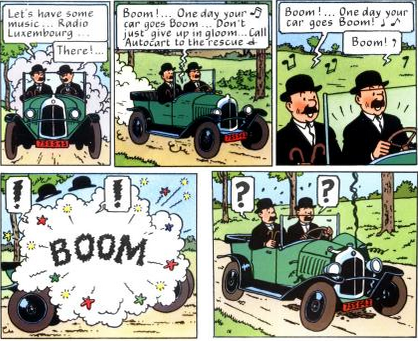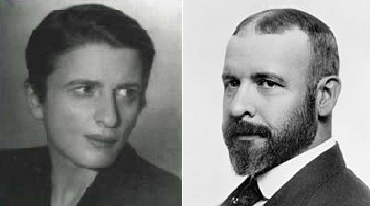[Warning: in the following post I sound more Straussian than is my usual wont. I promise not to make a habit of it.]
William Blackstone is often quoted as having said: “To deny the possibility, nay, actual existence, of witchcraft and sorcery is at once flatly to contradict the revealed word of God.” Out of context, this line creates a strong impression that Blackstone believed in witchcraft, and was defending the legal penalties established for its practice.

But when one looks at the context (Commentaries IV.4.6), it becomes clear that Blackstone is highly skeptical of witchcraft accusations and is looking for excuses not to enforce anti-witchcraft laws, albeit without explicitly denying the truth of scripture. Ultra-Enlightenment thinkers like Montesquieu and Addison are not the sorts of authorities that the superstitious, credulous, and intolerant are likely to be citing. Here’s the entire passage:
A sixth species of offence against God and religion, of which our antient books are full, is a crime of which one knows not well what account to give. I mean the offence of witchcraft, conjuration, enchantment, or sorcery. To deny the possibility, nay, actual existence, of witchcraft and sorcery is at once flatly to contradict the revealed word of God, in various passages both of the Old and New Testament: and the thing itself is a truth to which every nation in the world hath in its turn borne testimony, either by examples seemingly well attested or by prohibitory laws; which at least suppose the possibility of commerce with evil spirits. The civil law punishes with death not only the sorcerers themselves, but also those who consult them, imitating in the former the express law of God, “Thou shalt not suffer a witch to live.” And our own laws, both before and since the conquest, have been equally penal; ranking this crime in the same class with heresy, and condemning both to the flames. The president Montesquieu ranks them also both together, but with a very different view: laying it down as an important maxim that we ought to be very circumspect in the prosecution of magic and heresy; because the most unexceptionable conduct, the purest morals, and the constant practice of every duty in life are not a sufficient security against the suspicion of crimes like these. And indeed the ridiculous stories that are generally told, and the many impostures and delusions that have been discovered in all ages, are enough to demolish all faith in such a dubious crime; if the contrary evidence were not also extremely strong. Wherefore it seems to be the most eligible way to conclude, with an ingenious writer of our own, that in general there has been such a thing as witchcraft; though one cannot give credit to any particular modern instance of it.
Our forefathers were stronger believers when they enacted, by statute 33 Hen. VIII. c. 8, all witchcraft and sorcery to be felony without benefit of clergy; and again, by statute 1 Jac. I. c. 12, that all persons invoking any evil spirit, or consulting, covenanting with, entertaining, employing, feeding, or rewarding, any evil spirit; or taking up dead bodies from their graves to be used in any witchcraft, sorcery, charm, or enchantment; or killing or otherwise hurting any person by such infernal arts, should be guilty of felony without benefit of clergy, and suffer death. And if any person should attempt by sorcery to discover hidden treasure, or to restore stolen goods, or to provoke unlawful love, or to hurt any man or beast, though the same were not effected, he or she should suffer imprisonment and pillory for the first offence, and death for the second. These acts continued in force till lately, to the terror of all antient females in the kingdom: and many poor wretches were sacrificed thereby to the prejudice of their neighbours and their own illusions; not a few having, by some means or other, confessed the fact at the gallows. But all executions for this dubious crime are now at an end; our legislature having at length followed the wise example of Louis XIV. in France, who thought proper, by an edict, to restrain the tribunals of justice from receiving informations of witchcraft. And accordingly it is with us enacted, by statute 9 Geo. II. c. 5, that no prosecution shall for the future be carried on against any persons for conjuration, witchcraft, sorcery, or enchantment. But the misdemeanour of persons pretending to use witchcraft, tell fortunes, or discover stolen goods, by skill in the occult sciences, is still deservedly punished with a year’s imprisonment, and standing four times in the pillory.
Notice in particular how Blackstone softens Addison’s dictum that “I believe in general that there is, and has been such a thing as witchcraft, but at the same time can give no credit to any particular instance of it” by adding “modern” in front of “instance.” The passage from Addison obviously means that Addison does not believe in the truth of any actual cases of witchcraft, past or present. Blackstone rewrites the line to make it seem as though he is doubting only present reports, not past ones; but the fact that Blackstone felt the need to add “modern” shows that he understood perfectly well what Addison was saying – and by citing Addison favourably, Blackstone suggests that he in fact accepts Addison’s broader skepticism.




